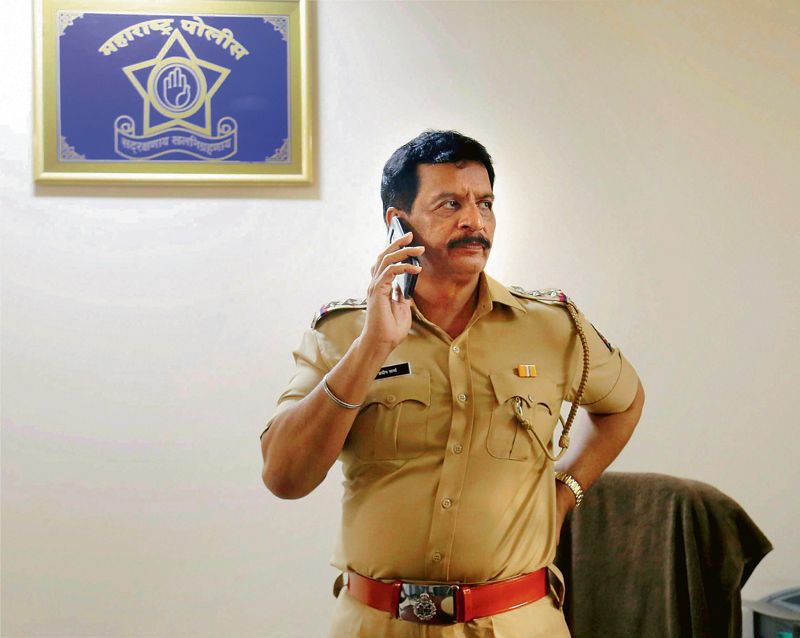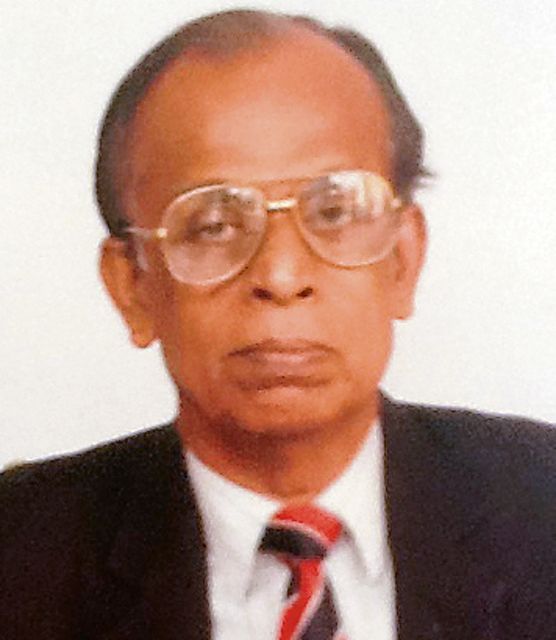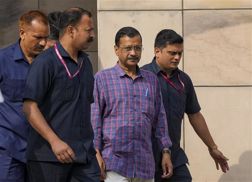
NOTORIOUS: Pradeep Sharma, an encounter specialist of the Mumbai Police, was recently sentenced to life imprisonment by the Bombay High Court in a 2006 case. PTI
Sankar Sen
Ex-Director, National Police Academy
ENCOUNTER specialists continue to pose grave problems for the police administration and operations. Recently, a notorious encounter specialist of the Mumbai Police, Pradeep Sharma, was sentenced to life imprisonment by the Bombay High Court in a 2006 case. The court also awarded a life sentence to 12 other cops, who were involved in the same case. This is exemplary punishment for trigger-happy police officers indulging in brazen illegalities.
However, the popular impression that fake encounters are the handiwork of errant cops is misleading. The hard fact to be acknowledged is that such encounters are the symptoms of a systemic malaise. At times, these encounters are staged by police officers because of the pressure exerted by their political masters and departmental bosses to show quick results by means fair or foul. The public, by and large, does not mind if cops take the law into their own hands and become executioners in the case of dreaded criminals.
The police dilemma is compounded by the slow-moving criminal justice system. As trials drag on indefinitely in the courts, witnesses are easily gained over or turn hostile. Hence, the police face tremendous pressure to adopt extrajudicial methods and shortcuts. Some civil libertarians presume that extrajudicial killings stem from the ‘bloodthirstiness’ of the police officials. This is not always the case. The police are encouraged to do the dirty work because the criminal justice system is not functioning properly, and overhauling the system is an arduous and time-consuming job.
But the fact to be constantly borne in mind is that encounters are counterproductive and encourage contempt for the law within the police. Breaking the law in the name of law enforcement is unacceptable in a democratic society governed by the rule of law. It is unacceptable because it is arbitrary as a process and random in effect.
In its report, the National Police Commission strongly condemned false encounters as a remedy. The need of the hour is to strengthen the law and legal processes. Unfortunately, some senior police officers, instead of resisting pressure from their political masters, bend over backwards to please them. As the DIG in charge of the Crime Investigation Department (CID) of the Odisha Police, I was berated by then Chief Minister for not knowing all the tricks of the ‘police tradecraft’.
Admittedly, in every police department, there are violence-prone officers who frequently indulge in a disproportionate use of force. In the US, the Christopher Commission, which looked into the misuse of force by the police after the Rodney King incident (1991) in Los Angeles, could pinpoint a few officers who were frequently crossing a red line. There should be no hesitation on the part of the police leaders to discipline and, if necessary, weed out the black sheep.
Thus, for dealing with the menace of fake encounters, systemic changes are called for. The National Human Rights Commission (NHRC), on receiving complaints of false encounters from the Andhra Pradesh civil liberties committee, held a public hearing in Hyderabad and recorded evidence. The NHRC Chairman, in a letter to the Chief Ministers, asked them to issue directions to all police stations through the Directors General of Police on procedures to be followed where deaths had occurred in encounters with the police. The commission was of the view that the right to private defence should not be manipulated to justify fake encounters.
The procedure outlined by the NHRC laid down that in the case of an encounter in which the police were involved, immediate steps should be taken to investigate the facts and circumstances leading to the incident and ascertain how the offence was committed and by whom. Moreover, if officers belonging to the same police station are members of the encounter party, it would be appropriate that other police agencies, preferably the state CID, should take over the investigation of such cases. Unfortunately, these salutary instructions of the NHRC remain just on paper and are highlighted only in their breach. It is not known if the NHRC has taken firm and tangible measures to ensure that its mandatory instructions are acted upon.
In the Indian police, peer group supervision is also conspicuously missing, though it can be a powerful tool for ensuring accountability and all-round good policing. In Japan, police officers work in pairs with the understanding that one is responsible for the work and conduct of the other. Policemen work in groups in India also, but the ethos is against the assumption of mutual responsibility. Peer supervision is closer and better informed than supervision by senior officers, but, unfortunately, it has remained a neglected aspect of internal regulation.
Violating the rule of law in the name of law enforcement is not desirable even from the limited point of view of the police. There are instances where criminals have used the police to bump off their rivals in intra-gang warfare. A research study by a former DGP of Maharashtra has shown how the Mumbai Police used to help one group of criminals eliminate their rivals in fake encounters.
There are many in the police force who mistakenly believe that the end justifies the means. However, the adoption of impermissible means ultimately vitiates the end. Further, violating the rule of law has the effect of ‘scapegoating’ the police. Police officers, particularly the top brass, have to constantly remember that when the police take recourse to extra-legal methods to make up for the deficiencies of law and legal procedures, they are trying to remedy inadequacies which they did not create. American scholar David Bayley has aptly said: “Illegality in the service of public safety makes policing a furtive and anxious activity and undermines the pride, which is the basis of job satisfaction.”
Join Whatsapp Channel of The Tribune for latest updates.



























